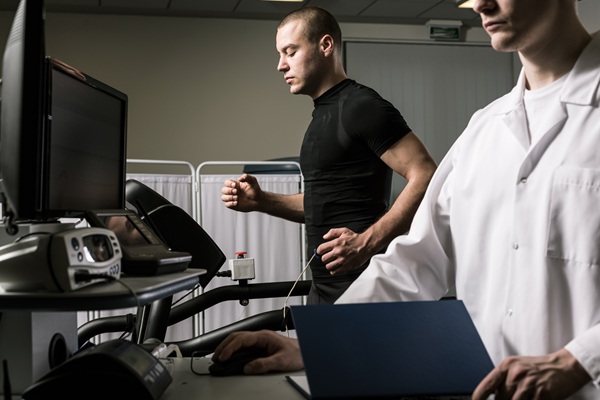Varicose Veins: Should I Be Worried About Them?

Looking for information on varicose veins? Whether you have been living with varicose veins for a while now or have only recently noticed them, understanding more about these abnormal blood vessels is a good idea. They typically appear on one’s legs or feet but can appear anywhere; they look like an exaggerated vein and can take on a blue or purple color. These bulging veins are more commonly found in those who are overweight, pregnant, stand in one place for long periods of time or have a family history of varicose veins.
About varicose veins
If you currently have varicose veins and are concerned that they will cause you to experience health issues, then learning more about this common condition is recommended. Varicose veins are caused when there is an increase of blood pressure within the veins. This increase in pressure will eventually damage or weaken a vein's valves, which means they are no longer able to support proper blood flow. This inability to properly move the blood flow through the vein can cause the blood to pool within the vein, causing them to enlarge.
According to Hopkins Medicine, varicose veins are not considered to be a serious medical condition but can lead to more serious problems.
Common symptoms associated with varicose veins
Common symptoms include small sores on one or both legs, a change in color near the affected vein area, a burning or itching feeling and/or small or large rashes. Serious cases of varicose veins can potentially create swelling in the area.
Are spider veins varicose veins?
Spider veins are a milder form of varicose veins. They are often red or blue in color and occur on the legs but can sometimes appear on or around the facial area.
When someone should be worried
Varicose veins can lead to someone being diagnosed with more serious vein problems, e.g., deep vein thrombosis, pulmonary embolism, etc. Deep vein thrombosis is a medical condition that happens when a blood clot is formed within someone’s veins, which often causes discomfort within the leg. Pulmonary embolism refers to a potentially life-threatening medical situation and is caused by blood clots that travel to the body and end up in the lungs.
Anyone who has varicose veins and is currently experiencing inflammation or pain in their legs should contact a medical professional as soon as possible for treatment.
Common treatment options
The type of treatment someone will require to address their varicose vein problem is determined case by case. A medical professional will take into account one’s age, their medical history, what types of symptoms they are experiencing and what other treatment options they have already tried, if any. Common treatment options include elevating the legs periodically throughout the day, wearing compression stockings, having a saline solution injected into the veins, using lasers to destroy the vein and completely removing the veins.
Are you worried about your varicose veins?
If you are currently living with varicose veins, you will need to make an appointment with a medical professional for a proper diagnosis. A physical examination will be performed, as well as an ultrasound that can check for proper blood flow. The type of treatment you will receive will simply depend on your particular situation. The sooner you seek treatment, the sooner you can understand whether your varicose veins will lead to additional health problems.
Let's get started
Are you considering treatment for varicose veins in the Boynton Beach area? Get more information at https://boyntonbeach.floridapremiercardio.com.
Check out what others are saying about our services on Yelp: Read our Yelp reviews.
Recent Posts
According to the Centers for Disease Control and Prevention, heart disease is the leading cause of death for adults in the United States. Therefore seeking chest pain treatment is crucial, especially for those at high risk for heart disease. However, chest pain can result from various health issues, so how does one know when it…
A cardiac stress test is a diagnostic tool to evaluate how well the heart performs under physical stress. Cardiologists use this test to detect underlying cardiovascular conditions, monitor treatment progress, or assess the risk of future heart complications. Cardiac stress tests are essential in the early detection and management of heart disease.A cardiac stress test…
Peripheral arterial disease affects blood flow in the arteries, most commonly in the legs. It develops due to plaque buildup in the arteries that causes them to narrow and restrict circulation, possibly leading to discomfort, difficulty walking, and other serious complications. Recognizing the symptoms early and exploring treatment options can help improve the quality of…
Receiving cardiovascular treatment is a critical step in managing heart health, but recovery and long-term are equally vital to ensure long-term wellness. Whether the treatment involves medication management, interventional procedures, or surgery, maintaining a relationship with the cardiologist and following their recovery guidelines is crucial. A structured follow-up plan allows patients to maintain the benefits…


